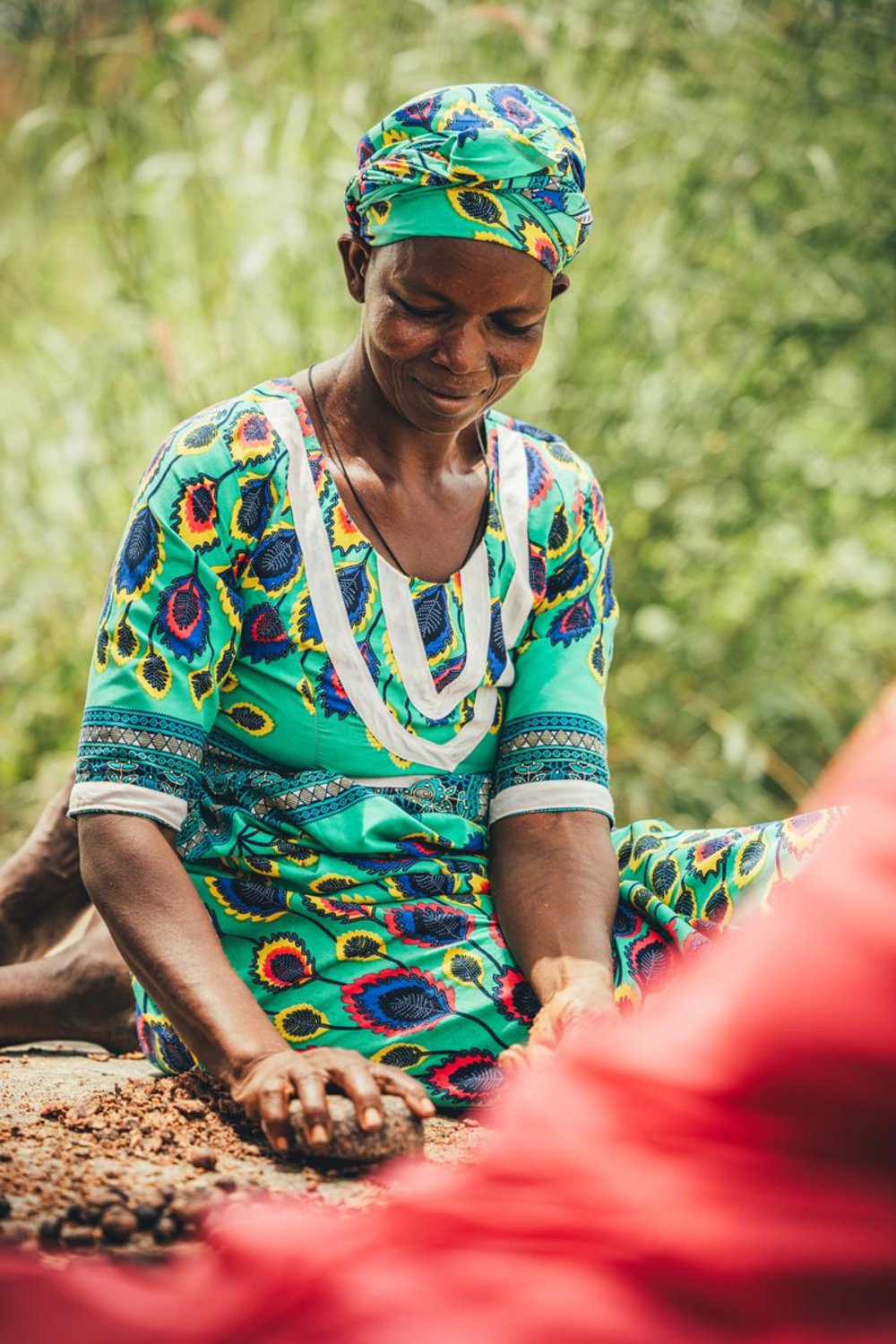Hands of gold – shea butter farmers
Upper East Ghana, Africa
Shea butter is in demand. Yet the women who produce it make very little money. What’s more, poor working conditions mean many of them are not fit to work by their 40s. So, what can we do? We’ve documented the current situation to galvanise support from those who can help. We are contributing our occupational safety and health (OSH) expertise while working alongside our partners to make these women’s lives safer and healthier.
Watch our 2025 film
This short film, Hands of Gold 2, gives an overview of progress made in the shea butter community.

Why this project
Shea butter production forms the basis of work for the women in North Ghana, specifically those in the Upper East territory. The end product is a high-value, in-demand range of oils used as an ingredient in cooking and also within the beauty industry. But the women retain little of its value.
The farmers produce the butter by hand, grinding nuts, washing nut powder, and cooking the mush in home-based settings with no power or running water. They conduct these manual processes in heat approaching 50-degrees centigrade.
It is common for women to die of heat exposure, including those pregnant aborting mid-term due to the unborn child experiencing heat stress. Lactating mothers may also develop chronic mastitis. Longer term, many workers develop musculoskeletal disorders (MSDs), in particular shoulder joint issues
Many of these women are not fit to work by the time they reach their 40s, though they continue to do so with significant injury or illness. Work-related sickness means the women can't feed their families, they need to remove girls from school due to lack of money and broad malnutrition.
Project goals
These are based on the risk assessment recommendations for a safer and healthier working life for the shea butter workers and include both short- and long-term targets. You can download the risk assessment at the bottom of this page.
Provide workers with the tools and facilities to conduct their work in a safe and healthy way.
Support the workers and community to make the transition from informal to formal economy.
Promote opportunities for marketing the products to attract formal, international buyers to increase reach, interest and potential for high-value orders.
Educate and train the workers on the hazards and risks of their working practices and explain how these can be avoided.
Raise awareness and gain support from partners, governments and interested parties to help workers change their current way of working through investment, training and provision of safety supplies.
"The crushing part is very difficult for us because our hands and shoulders really hurt. Sometimes you accidentally hit your finger and you can't continue working."
Ayane
- Job role
- Assistant chairwoman and farmer
- Company
- Shea Butter Co-operative
Who is involved
- Commonwealth Business Women Africa (CBW-Africa)
- Commonwealth Enterprise and Investment Council (CWEIC)
- Embassy of Germany
- Government of Ghana
- International Labour Organization (ILO)
- International Social Security Association (ISSA)
- IOSH consultants
- Local IOSH members
- Rotary Club
- Shea butter farmers and textile weavers
- UK High Commission Ghana
- United Nations Office for Project Services (UNOPS)
Progress so far
- Local occupational safety and health experts and IOSH members conducted an impartial risk assessment to assess the current conditions (July).
- Formed a co-operative, Lana Empire Foundation Africa, bringing the women into the formal economy (March).
- Registered the co-operatives through the Food and Drug Administration approval process. This means they are able to sell their products and can quantify the quality to local and international markets at better price points (September).
- They have attracted interest from formal buyers, meaning the possibility of receiving large, high-value orders is now a reality (September).
- A shea butter factory has been funded by the German Embassy and is being built (November).
- International Labour Organization (ILO) is working to identify how it can support the programme of work for future roll out and how it can influence within the upper east region (February).
- Shea butter factory build is complete, with support from the German Embassy (March).
- Borehole and toilet facilities are in progress for the new factory (April).
- The workers will begin accessing the factory and using the facilities (April).

Get involved
We welcome your support in helping people stay safe at work. It can change the lives of the most vulnerable workers. Find out more about these projects and the work we are doing.
 IOSH
IOSH
